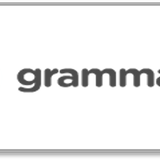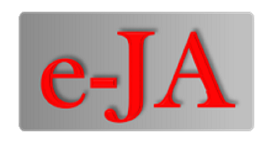Fintech Implementation On The Financial Performance Of Rural Credit Banks
DOI:
https://doi.org/10.24912/ja.v24i2.693Abstract
This study aims to determine whether the enactment of BI regulation No.19 / 12 / PBI / 2017 by Financial Services Authority (OJK) in Indonesia has an impact on the performance of banks, especially rural banks(RCB). This’s because RCBare still bound by OJK regulations in lending with a loan mechanism requirements that are quite burdensome customers. The populationused in this study is the RCBin Banten Provincethat registered by OJKfor 2014 -2018, the sampling method used is non probability sampling, the data analysis technique uses Comparative Analysis with descriptive quantitative approach, with the help of eview .9. the results are that for the year prior to the enactment of Bank of Indonesia regulation No. 19/12 / PBI / 2017 the variable lending and capital raising has a significant negative effect on the quality of productive assets, while for theFunding variable has no effect.
References
Affandi, Y, Harahap, BA, Bary, P. Kusuma, ACM, dan Rachman R.N. 2016. Dampak Financial Technology Pada Macro ekonomi dan Moneter. Laporan Hasil penelitian DKEM 2016
Ali, H. S. (2013). Pengelolaan BPR dan Lembaga Keuangan Pembiayaan Makro. Semarang
Alinda,Poppy Dwi,Hendra Kusuma. (2018). Analisis Kinerja Bank perkreditan Rakyat diwilayah malang raya, Jurnal Ilmu Ekonomi 2.3.
Akujuobi, A. B. C., and Nwezeaku, N. C. (2015). Bank lending activities and economic development in Nigeria; An empirical investigation. International Proceedings of Economics Development and Research, 85, 57.
Alt, R., Beck, R., and Smits, M. T. (2018). FinTech and the transformation of the financial industry. Springer.
Awo, J. P., and Akotey, J. O. (2019). The financial performance of rural banks in Ghana. World Journal of Entrepreneurship, Management and Sustainable Development.
Biancone, P. P., Secinaro, S., and Kamal, M. (2019). Crowdfunding and Fintech: Business model sharia compliant.
Basuki, Ferry Hendro, Hartiana Husein. (2019). Analisis SWOT Financial Technology pada Dunia Perbankan di kota Ambon, Jurnal Manis 2.1.
Bank Indonesia. (2017). Presentasi FinTech Office, Financial Technology:Perkembangan dan Respons Kebijakan Bank Indonesia, Jakarta.
Chen, Z., Li, Y., Wu, Y., and Luo, J. (2017). The transition from traditional banking to mobile internet finance: An organizational innovation perspective-a comparative study of Citibank and ICBC. Financial Innovation, 3(1), 1–16.
Dialysa, F. (2019). Synchronize Fintech And The Banking Industry. International Journal of Advanced Research in Technology and Innovation, 1(2), 18–25.
Dortfleitner, G, Hornuf, L, Schmitt,M and Weber,M (2017). Fintech in Germany. Spring International Publishing AG.
Erwin, K., Abubakar, E., and Muda, I. (2018). The Relationship of Lending, Funding, Capital, Human Resource, Asset Liability Management to Non-Financial Sustainability of Rural Banks (BPRs) in Indonesia. Journal of Applied Economic Sciences, 13(2).
Etu-Menson, F., dan Ato Enyamful, D. (2011). Capital Structure and Profitability of Ghanaian Rural Banks-Case Studies of Kakum and Gomoa Ajumako Rural Banks in the Central Region of Ghana. Capital Structure and Profitability of Ghanaian Rural Banks-Case Studies of Kakum and Gomoa Ajumako Rural Banks in the Central Region of Ghana (September 20, 2011).
Gomber, P., Koch, J.-A., and Siering, M. (2017). Digital Finance and FinTech: Current research and future research directions. Journal of Business Economics, 87(5), 537–580.
Handayani, R. (2019). Analysis Of Camel Method On Bank Health Level In Pt. Indonesia State Bank (Persero) TBK. International Management Journal January–June 2019, 84.
Harefa,Alvani Amaerita. (2018). Fianancial Technology, Regulasi dan Adaptasi perbankan di Indonesia, Fundamental Management Journal 3.1
Harahap, Berry.A., Bary Idham, Cinditya M.Kusuma, Nur Rakhman (2017), Perkembangan Financial Technology Terkait Central Bank Digital Currency (CBDC) terhadap Transmisi Kebijakan Moneter dan Makroekonomi, Working Paper Bank Indonesia.
Junger, Moritz,Mark Mietzner. (2019). Banking Goes to Digital: The adoption of Fintech Services by German Household, Finance Research Letter, Volume 34, http//doi.org/10.1016/j.frl.2019.08.08.
Kennedy, P.S.J. (2017). Literature Review: Tantangan terhadap Ancaman Disruptif dari Financial Technology dan peran pemerintah dalam menyikapinya, (2), 171 – 182.
Kawai, Yoshi. (2016). Fintech. International Association of insurance Supervisors (IAIS) Newsletter, May 2016.
Kasmir. (2014). Bank dan Lembaga Keuangan Lainnya. Jakarta: Rajawali Pers.
Kasmir. (2017). Analisis Laporan Keuangan. Jakarta: Rajawali Pers.
Ibor, B. I., Offiong, A. I., and Mendie, E. S. (2017). Financial inclusion and performance of micro, small and medium scale enterprises in Nigeria. International Journal of Research Granthaalayah, 5(3), 104–122.
Lusardi, A., and Mitchell, O. S. (2014). The economic importance of financial literacy: Theory and evidence. Journal of Economic Literature, 52(1), 5–44.
McKinsey & Companny. (2016). Unlocking Indonesia’s Digital Opportunity. October 2016.
Navaretti, G. B., Calzolari, G., Mansilla-Fernandez, J. M., & Pozzolo, A. F. (2018). Fintech and Banking. Friends or Foes? Friends or Foes.
Nicoletti, B., Nicoletti, and Weis. (2017). Future of FinTech. Springer.
Nizar, Muhammad Aldi. (2017) Teknologi keuangan (Fintech): Konsep dan implementasinya di Indonesia, Warta Fiskal I Edisi#5/2017, Kementerian Keuangan.
Rasyid. A, Sekilas Perkembangan Fintech Di Indonesia, Business law, Faculty of humanities-Binus University (2019), from https://business-law.binus.ac.id/2019/03/19/sekilas-perkembangan-fintech-di-indonesia.
Thakor, Anjan.V. (2020). Fintech and Banking : What Do We Know, Journal of Financial Intermediation, Volume 41, doi.org/10.1016/j.jfi.2019.100833.
Wonglimpiyarat, Jerunee. (2020). Challenges and Dynamics of Fintech Crowdfunding : An Innovation System Approach Journal of High Technology Management Research ,Volume 29. Issue 2018.
Downloads
Published
How to Cite
Issue
Section
License
Copyright (c) 2020 Jurnal Akuntansi

This work is licensed under a Creative Commons Attribution-NonCommercial-ShareAlike 4.0 International License.
This journal provides immediate open access to its content on the principle that making research freely available to the public supports a greater global exchange of knowledge.

This work is licensed under a Creative Commons Attribution-NonCommercial-ShareAlike 4.0 International License



















